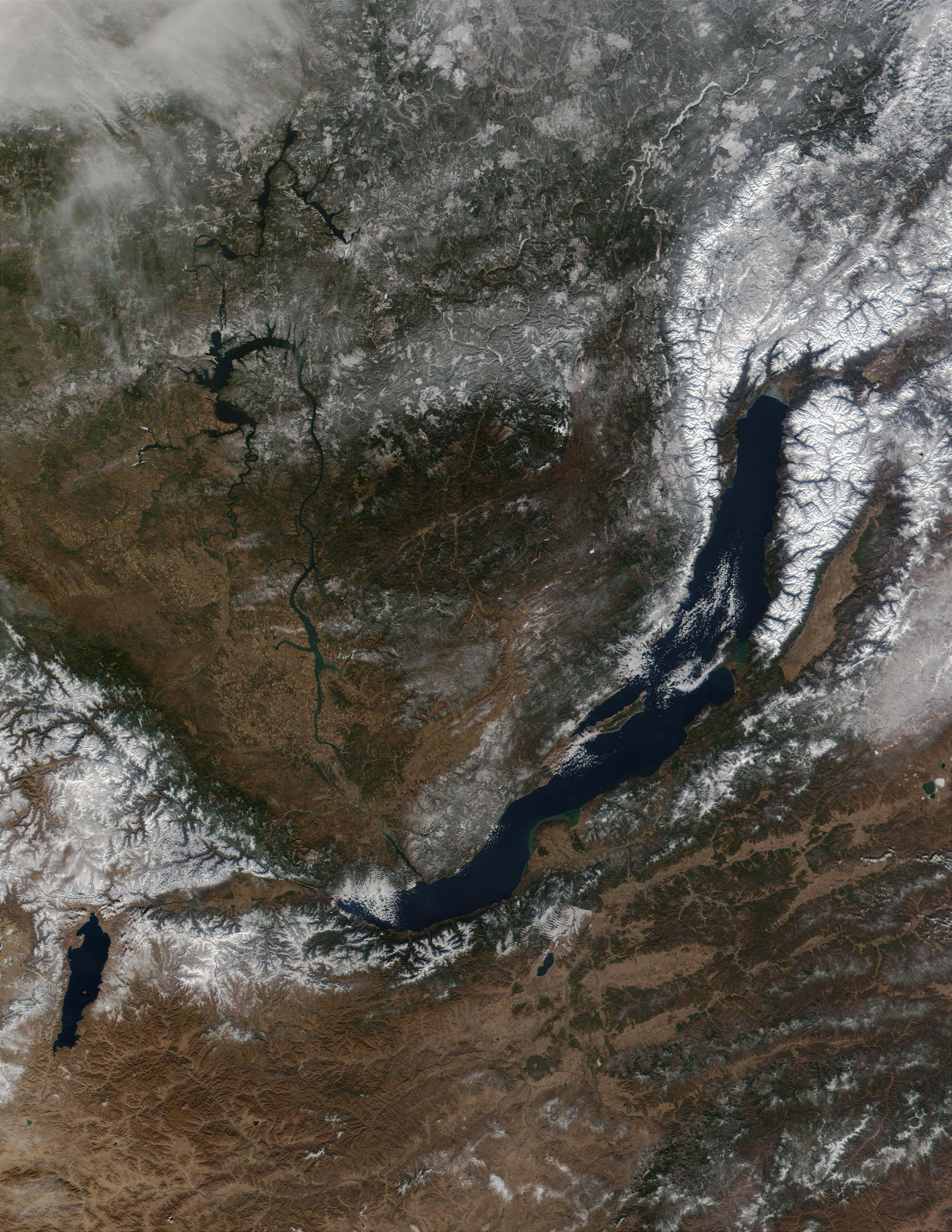Lake Baikal
 Lake Baikal ( ; ; ) is the deepest rift lake in the world. It is situated in southern Siberia, Russia between the federal subjects of Irkutsk Oblast to the northwest and the Republic of Buryatia to the southeast.
Lake Baikal ( ; ; ) is the deepest rift lake in the world. It is situated in southern Siberia, Russia between the federal subjects of Irkutsk Oblast to the northwest and the Republic of Buryatia to the southeast.At —slightly larger than Belgium—Lake Baikal is the world's seventh-largest lake by surface area, as well as the second largest lake in Eurasia after the Caspian Sea. However, because it is also the deepest lake, with a maximum depth of , Lake Baikal is the world's largest freshwater lake by volume, containing of water or 22–23% of the world's fresh surface water, more than all of the North American Great Lakes combined. It is also the world's oldest lake at 25–30 million years, and among the clearest.
Lake Baikal is home to thousands of species of plants and animals, many of them endemic to the region. It is also home to Buryat tribes, who raise goats, camels, cattle, sheep, and horses on the eastern side of the lake, where the mean temperature varies from a winter minimum of to a summer maximum of . The region to the east of Lake Baikal is referred to as Transbaikalia or as the Transbaikal, and the loosely defined region around the lake itself is sometimes known as Baikalia. UNESCO declared Baikal a World Heritage Site in 1996. Provided by Wikipedia
-
1
-
2